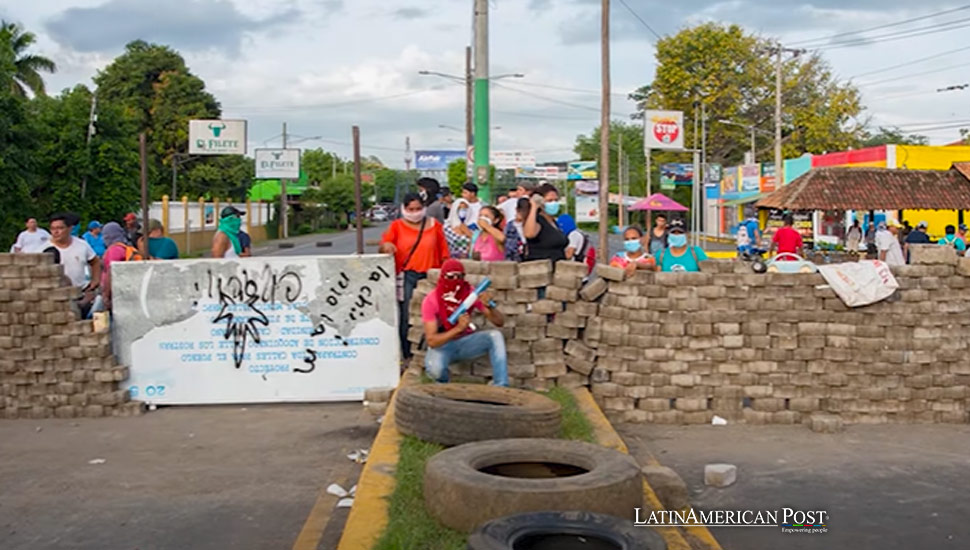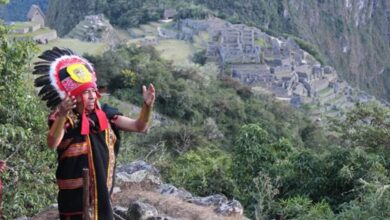Documentary Exposes 2018 Repression in Nicaragua and Quest for Justice

The documentary Operación Limpieza’ reveals the brutal repression carried out by Daniel Ortega’s government in Nicaragua in 2018, sparking a call for justice and accountability for the hundreds of lives lost.
A chilling new documentary titled ‘Operación Limpieza’ premiered at the Central American Journalism Forum in Costa Rica, shedding light on the severe repression executed by the Nicaraguan government under President Daniel Ortega between June and July 2018. Produced by the Center for Justice and International Law (Cejil) and the Argentine Forensic Anthropology Team (EAAF), the documentary meticulously reconstructs the events that led to the deaths of over 200 people and highlights the urgent need for justice and accountability.
The social unrest in Nicaragua began in April 2018, triggered by unpopular social security reforms. The protests quickly escalated into a broader movement against Ortega’s government, which responded with a brutal crackdown. Ortega labeled the protests as an attempted coup, justifying the heavy-handed response that followed. ‘Operación Limpieza,’ which translates to ‘Operation Cleanup,’ was the name given by the Nicaraguan police to their strategy of suppressing these protests.
The Documentary’s Revelations
The documentary presents a detailed narrative of the repression, utilizing hundreds of videos and photographs from journalists and protestors, combined with advanced georeferencing techniques to piece together the events. Claudia Paz y Paz, Cejil’s program director for Central America and Mexico, emphasized during the presentation that the documentary aims to ensure these events are remembered, demanding justice, reparations, and non-repetition.
The documentary’s lens takes viewers through the Nicaraguan government’s systematic efforts to crush dissent. The strategy included dismantling barricades and roadblocks, known locally as “tranques,” erected by protestors across various cities, particularly along the critical Inter-American Highway.
Latin America has a long history of political repression and human rights violations. From the military dictatorships of the 20th century in countries like Argentina, Chile, and Brazil to more recent instances in Venezuela and now Nicaragua, the region has witnessed numerous cases in which governments have resorted to violence to suppress opposition. The events in Nicaragua in 2018 are part of this troubling legacy, representing one of the region’s most severe crackdowns on social protest in the last 40 years.
The Role of Paramilitaries and Military Tactics
The documentary comprehensively examines how regular and paramilitary forces collaborated in the repression. Using a rigorous investigation of the events, it shows the organization and systematic use of military-grade weapons. Mercedes Doretti, EAAF’s director for Central and North America, expressed hope that the documentary would provide enough information and analysis to spur deeper investigations, paving the way for truth and justice for the victims and their families.
The call for justice is a central theme in ‘Operación Limpieza.’ Paz y Paz stressed the importance of ensuring that the severe human rights violations committed in Nicaragua do not remain in impunity. “We do not want what happened in Nicaragua in 2018, and the grave violations of human rights that continue to this day, to remain unpunished or to occur again in any other country,” she stated.
The documentary aims to catalyze legal and forensic investigations into crimes that must be adequately addressed. The film provides a multi-faceted view of the events and their impact by combining personal footage, press materials, data analysis, geolocation, and timelines.
Production and Impact
Directed and designed by Pablo Gallo and Ángeles Briones, with production assistance from Emanuele Ghebaur and music and sound by Nicola Ariutti, ‘Operación Limpieza’ is a powerful testament to the collaborative effort between Cejil and EAAF. The narration by Cindy Regidor adds a poignant touch to the film, guiding viewers through the harrowing events and the ongoing struggle for justice.
The producers highlight the documentary’s role in providing a legal and forensic perspective on crimes that have yet to be thoroughly investigated or prosecuted. It aims to bring international attention to the situation in Nicaragua and mobilize efforts to hold those responsible accountable.
The documentary’s release at the Central American Journalism Forum underscores the importance of journalistic integrity and the role of the media in uncovering truths that might otherwise remain hidden. The hope is that ‘Operación Limpieza’ will inform and inspire action, prompting both national and international bodies to pursue justice for the victims of the 2018 repression.
Latin America has a history of human rights advocacy and transitional justice efforts, often led by civil society organizations and international bodies. The region offers numerous examples of how societies can confront their past and seek redress for victims, from the truth commissions in Argentina and Chile to the ongoing struggles in Colombia and Venezuela. Nicaragua’s case adds to this continuum, emphasizing the need for a concerted effort to ensure that history does not repeat itself.
Also read: Nicaragua’s New Council Targets Organized Crime Amid Controversy
‘Operación Limpieza’ is more than just a documentary; it is a call to action. By exposing the brutal repression carried out by Daniel Ortega’s government in Nicaragua, it seeks to ensure that the world does not forget the victims of 2018 and that justice is served. As the international community watches, the hope is that this documentary will pave the way for deeper investigations, greater accountability, and lasting change.
Latin America’s struggle for human rights and justice continues, and ‘Operación Limpieza’ is a crucial step in that journey. It stands as a reminder of the resilience of the human spirit and the enduring fight for truth and justice in the face of oppression.





